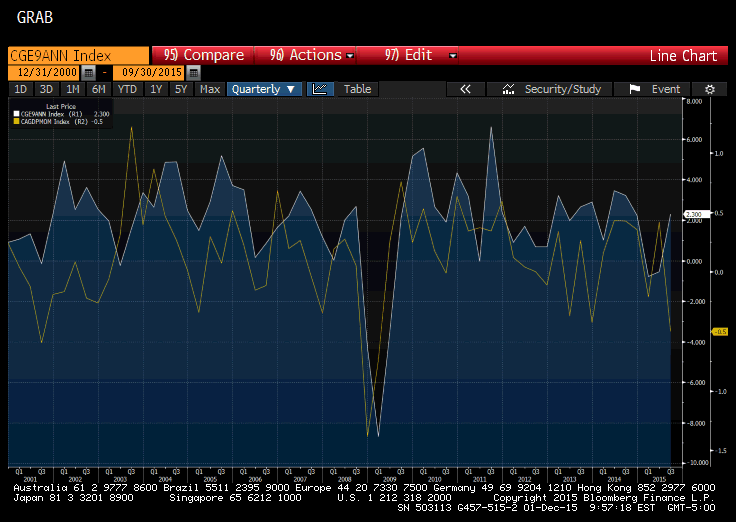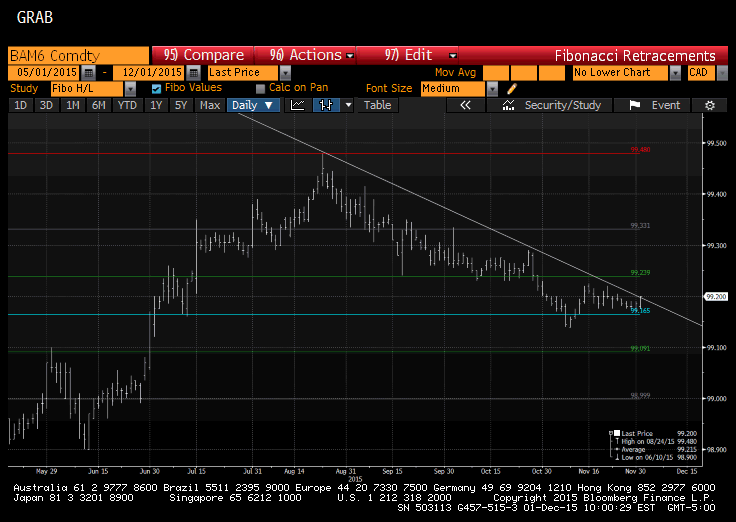Canada reported its monthly GDP estimate for September, and at the same time, provided its first estimate of Q3 GDP. The Great Graphic, created on Bloomberg, shows both time series.
The monthly GDP is depicted by the yellow line and the quarterly estimate is the white line. Clearly they track each other, as one would expected. The good news is that after contracting in the first two quarters of the year, the Canadian economy expanded by 2.3% in Q3.

The bad news is that the growth was front-loaded, and as the quarter progressed, it lost much of its momentum. The 0.5% contraction in September was the largest monthly decline since early 2009.
The monthly GDP fell for the first five months of the year. It bounced back in June, expanding by 0.4% and largely maintained its mojo in July by growing 0.3%. However, the economy slowed to 0.1% in August before the September decline. There is no positive momentum at the start of Q4.
Since August, interest rate expectations in Canada, as reflected by the June 16 BA futures have generally faded. After cutting rates twice in the first part of the year, the Bank of Canada signaled that the mini-easing cycle was over.

The lower graph here shows the June 16 BA futures. They are flirting with the downtrend line, which comes in near 99.20 today. It is unreasonable to expect the Bank of Canada to cut rates at tomorrow’s meeting. However, a dovish statement could fan rate cut expectations, which would lift the BA futures and weigh on the Canadian dollar. Friday’s jobs report for the US and Canada will also likely underscore the divergence between the two economies.











Leave A Comment